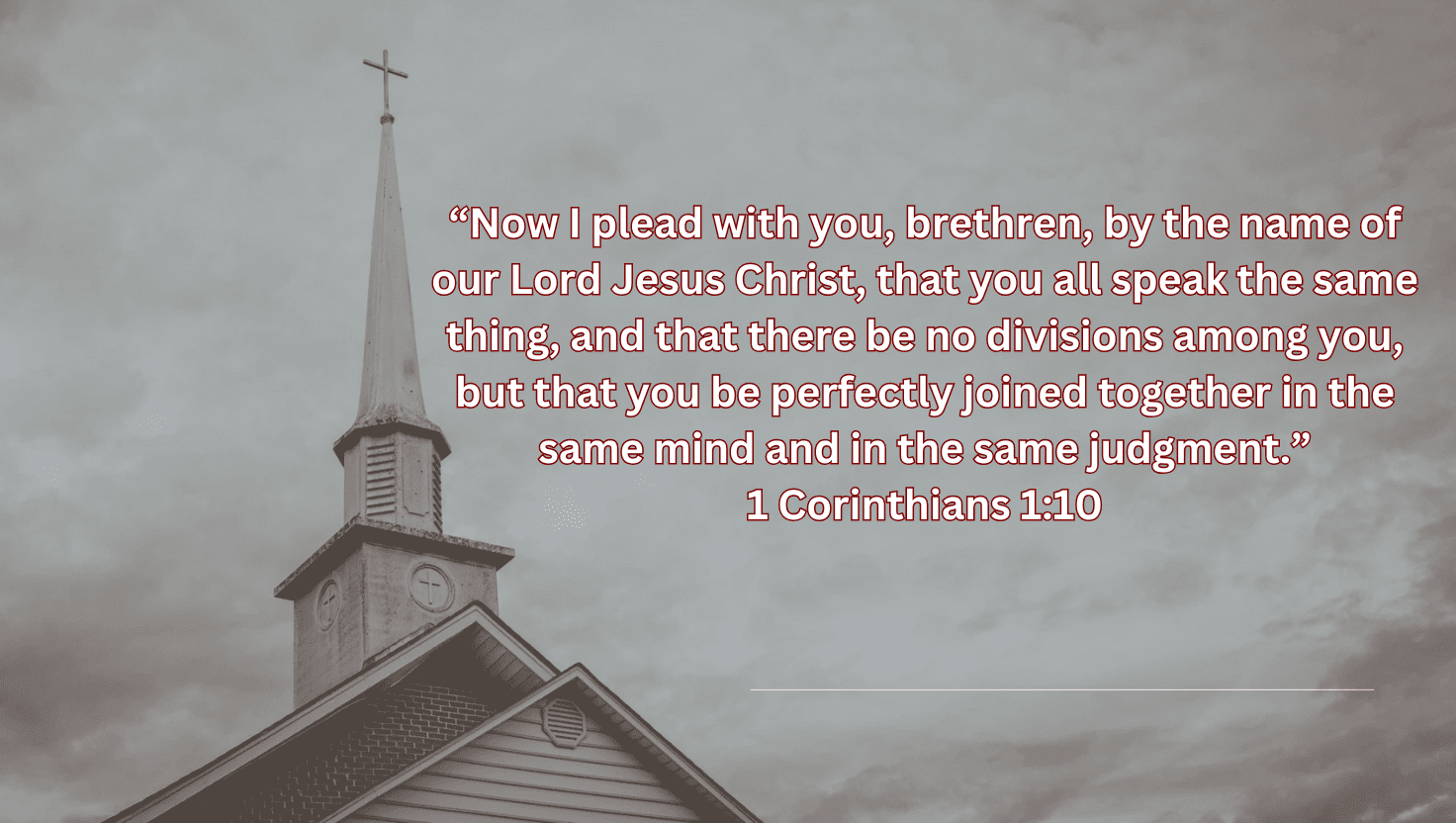In today’s religious world, denominationalism has become the norm. There are thousands of churches, sects, and faith groups—each with their own name, structure, and doctrine. Many accept this state of division as a sign of religious freedom or diversity. But when we open the Bible, we quickly realize that denominationalism is not from God—it’s a product of man.
The Bible calls for unity, oneness, and obedience to the doctrine of Christ. Denominationalism, on the other hand, promotes division, confusion, and often rebellion against the authority of God’s Word.
Let’s examine the biblical warnings against denominationalism and what it means to truly follow Christ.
1. Denominationalism Violates Christ’s Prayer for Unity
Before going to the cross, Jesus prayed a powerful prayer for all who would believe in Him:
“I do not pray for these alone, but also for those who will believe in Me through their word; that they all may be one, as You, Father, are in Me, and I in You; that they also may be one in Us, that the world may believe that You sent Me.”
— John 17:20–21
Christ’s desire is clear: that His followers would be unified, just as He and the Father are one. Denominationalism blatantly ignores this plea. It divides Christ’s followers into competing and often contradictory groups, each with different beliefs, worship practices, and teachings about salvation.
If unity is essential for the world to believe, then division undermines that witness.
2. Denominationalism Contradicts Apostolic Teaching
The early church faced the threat of division, and the apostle Paul addressed it directly:
“Now I plead with you, brethren, by the name of our Lord Jesus Christ, that you all speak the same thing, and that there be no divisions among you, but that you be perfectly joined together in the same mind and in the same judgment.”
— 1 Corinthians 1:10
Paul was not merely making a suggestion—he was pleading in the name of Christ for doctrinal and spiritual unity. The idea of multiple “churches” teaching opposing doctrines would have been foreign and unacceptable to the apostles.
He continues in verse 13 with a piercing question:
“Is Christ divided?”
Today’s denominational landscape answers that question with a “yes,” though it should be “no.” Christ is not divided, and neither should His followers be.
3. Denominationalism Produces False Doctrine
Each denomination tends to develop its own creeds, traditions, or teachings—many of which directly contradict the Bible. This is dangerous. Jesus warned:
“And in vain they worship Me, teaching as doctrines the commandments of men.”
— Matthew 15:9
God never gave man the authority to rewrite or modify His Word to fit human preferences. Denominationalism promotes a cafeteria-style faith, where one can pick and choose a church based on feelings, heritage, or style, rather than truth.
Paul instructed Timothy:
“Preach the word! … For the time will come when they will not endure sound doctrine… they will turn their ears away from the truth and be turned aside to fables.”
— 2 Timothy 4:2–4
That time has come. Denominationalism has enabled and accelerated the rejection of sound doctrine in favor of man-made religion.
4. Denominationalism Creates Division, Not Fellowship
The church of Christ in the first century was known for its unity in doctrine, fellowship, breaking of bread, and prayer (Acts 2:42). Christians shared one Lord, one faith, one baptism, one hope (Ephesians 4:4–6). They didn’t wear different names or rally around different leaders.
Paul rebuked the Corinthians for forming camps around men:
“For when one says, ‘I am of Paul,’ and another, ‘I am of Apollos,’ are you not carnal?”
— 1 Corinthians 3:4
Today, some say “I’m a Baptist,” “I’m a Methodist,” “I’m a Pentecostal,” or “I’m a Catholic.” What’s the difference between that and the Corinthians saying, “I’m of Paul” or “I’m of Apollos”?
These labels divide what Christ meant to be united. True fellowship can only be built upon the unchanging Word of God, not upon denominational names or traditions.
5. Denominationalism Will Not Be Recognized by Christ
Many believe all churches lead to heaven, but Jesus warned that not everyone who claims to serve Him will enter the kingdom:
“Not everyone who says to Me, ‘Lord, Lord,’ shall enter the kingdom of heaven, but he who does the will of My Father in heaven.”
— Matthew 7:21
He continues:
“Many will say to Me in that day, ‘Lord, Lord, have we not prophesied in Your name…?’ And then I will declare to them, ‘I never knew you; depart from Me, you who practice lawlessness!’”
— Matthew 7:22–23
It’s not enough to be religious. It’s not enough to claim Christ. We must do the will of the Father, and that means abiding in His church, not one invented by man.
6. Denominationalism Undermines the Identity of Christ’s Church
Jesus said:
“I will build My church…”
— Matthew 16:18
Notice: not churches—church (singular). He built one church, purchased with His own blood (Acts 20:28), and that church was established on the Day of Pentecost in Jerusalem (Acts 2). It had no sects, no divisions, and no denominations.
Those who obeyed the gospel were added by the Lord to His church (Acts 2:47). They weren’t voted in. They didn’t join a denomination. They simply became Christians—members of the body of Christ (1 Corinthians 12:27).
Conclusion: Return to the Bible and Be One in Christ
Denominationalism is not from God—it is from man. It divides what Christ came to unite, it teaches doctrines He never approved, and it leads souls away from the simplicity and purity of the gospel.
The solution is simple but challenging: we must lay aside all denominational names, traditions, and teachings, and return to the Bible alone. We must seek the church that Jesus established—not a denomination, but the church of Christ, the body, and the bride.
Let us heed Paul’s warning and Christ’s plea:
“Is Christ divided?” (1 Corinthians 1:13)
“That they all may be one…” (John 17:21)
Let’s be one—in Christ, in truth, in His body. Not divided by denomination, but united by the Word.


0 comments